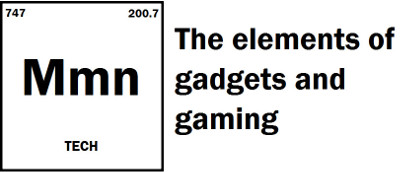

Nintendo, PlayStation, Xbox manufacturers accused of using forced labour
Nintendo, Sony, and Microsoft have come under fire this week following allegations that their factories in China have been using forced labour.
According to a study by the Australian Strategic Policy Institute, up to 80,000 Uighur Muslims are working under forced conditions at factories responsible for manufacturing pretty much every big tech product from Apple, Microsoft, Nintendo, and Sony, along with many others.
The Chinese Communist Party has been waging a campaign against ethnic and religious minorities in its western province of Xinjiang. The Uighurs in particular have been singled out as part of this. Many of whom have been forcibly rounded up and interned in camps. The Chinese government has characterized these as “vocational training” centres. However, international aid organizations have identified them as political re-education facilities, and have compared their conditions to Soviet Gulags and Nazi concentration camps. Deaths in the camps through malnutrition, denial of medical care, and violence, are common. CCP officials have also been accused of rape, torture, brainwashing, and other atrocities. Many in the international community, including the United States government, have labelled these actions as a genocide.
Reports came out late last year that these camps were also lending out prisoners to work under at Chinese factories. Former detainees said they were not given a choice to work, and were often paid a pittance, if anything at all. 83 international brands are believed to have profited off this forced labour.
The ASPI is asking those involved in its report to “conduct immediate and thorough human rights due diligence on its factory labour in China”, and take remedial action if violations are found.
Speaking to VGC, a Microsoft spokesman said “Microsoft is committed to responsible and ethical sourcing. We take this responsibility very seriously and take significant steps to enforce our policies and code of conduct in support of human rights, labor, health and safety, environmental protection, and business ethics through our assurance program.” Further noting that ““all forms of forced labor are specifically banned by our Supplier Code of Conduct. We are investigating the claims and will take appropriate action if breaches of our code of conduct exist.”
This isn’t the first time that major tech companies have been caught up in labour abuses at their global facilities. Workers in India trashed an iPhone factory last December after reports came out that they were being paid far below promised wages. Another Apple supplier, Foxconn, who also makes consoles for Sony, Microsoft, and Nintendo, came under fire several years ago after a string of worker suicides.
Each time these abuses crop up, the company promises an investigation. However, the issues persist. This is because most major brands don’t actually manufacture anything at all. Everything is subcontracted out to third party companies, whom actually own and staff the factories. This allows large conglomerates to hide behind the veil of plausible deniability. Sure, they all know why labour is so cheap overseas. But they operate under a “don’t ask, don’t tell” policy when dealing with their contractors.
When they get caught, we get the usual PR fluff (see Microsoft’s statement above), and maybe a sternly worded letter. One which undoubtedly includes a lot of winks and nudges. And nothing ever happens to rectify the issues. Lawsuits put the burden of proof on the plaintiff. Unfortunately, it’s a lot harder to demonstrate beyond reasonable doubt that they knew of these abuses, than they did not. That’s how these corporate giants get away with it. Well, that and good old fashioned government corruption. Bureaucrats and representatives that will turn a blind eye to the most heinous of practices for a few dollars.
Many online have pointed out the hypocrisy of many of these companies, who are pushing “woke” talking points while simultaneously profiting off literal slave labour. It’s a good case study for why you shouldn’t get your morals from corporations.


